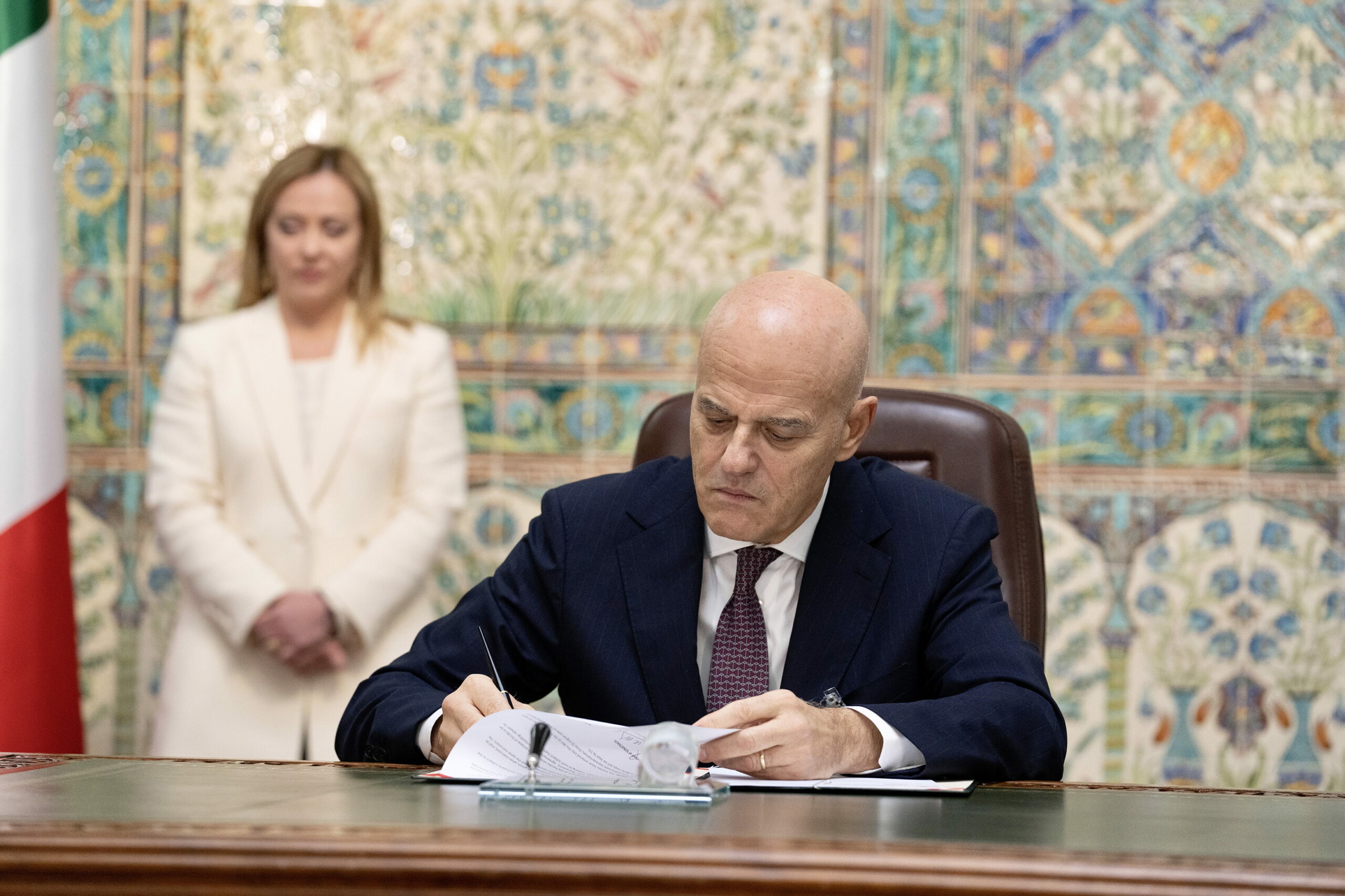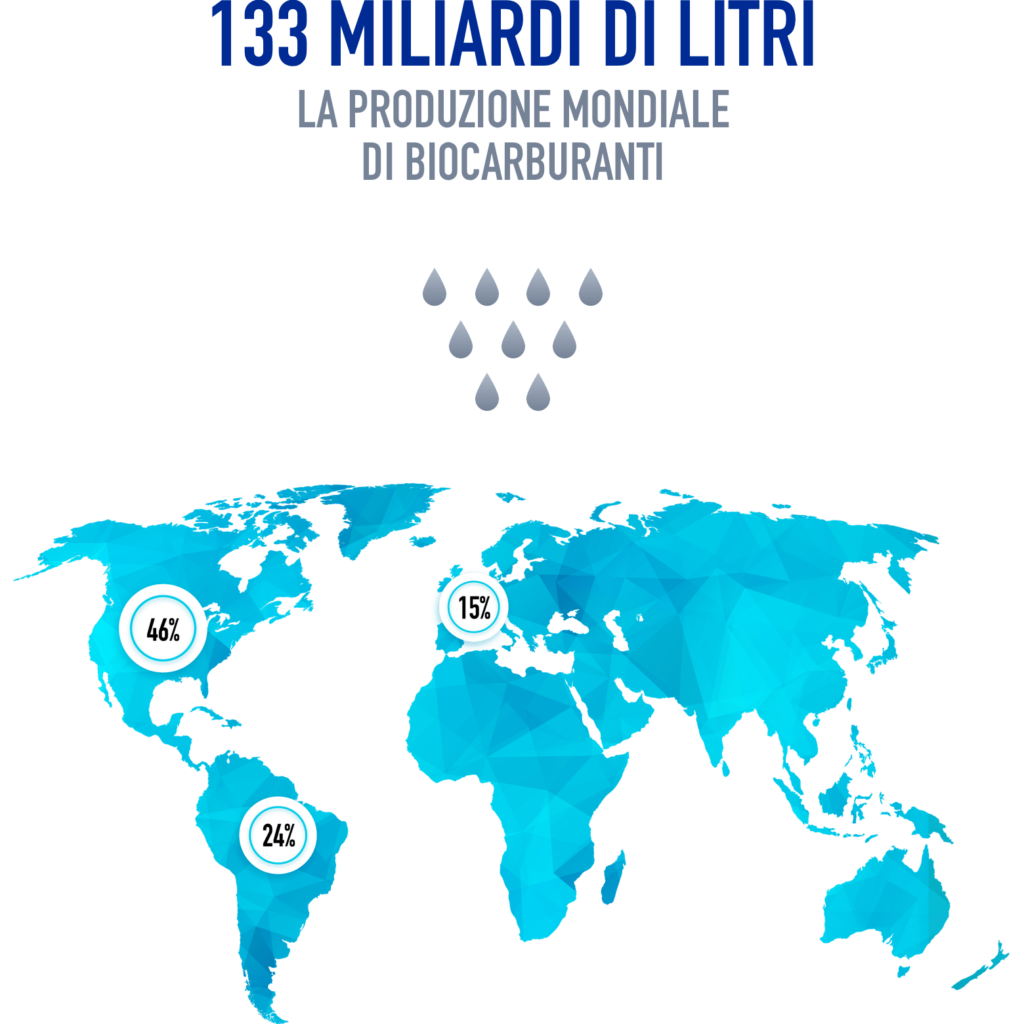Eni, here’s how and why Italy is pushing biofuels in Europe

The letter from the Italian government to the European Commission advocating biofuels and the role of Eni. Facts, numbers and insights
If Germany has suddenly woken up to the stop to the electric car intended as the only technology on which to base the decarbonisation process in the 27 EU countries, the Italian government with a letter that the Ministers of Transport, Matteo Salvini, of the Environment, Gilberto Pichetto Fratin , and Adolfo Urso from Business , sent to Frans Timmermans , vice president of the European Commission and head of the Green Deal, ask for a derogation not only for e-fuels, but also for biofuels.
WHAT ITALY ASKS OF THE EU
"Italy is fully committed to the decarbonisation of the transport sector and the reduction of emissions from light vehicles", reads the government's letter which reiterates "the need to respect the principle of technological neutrality to guarantee an economically sustainable and socially equitable towards zero-emission mobility” and that our country would not accept “an unduly narrow interpretation by the Commission of the concept of neutral fuels”, with the exclusion of biofuels .
THE WORDS OF MELONS FOR BIOFUEL
“I have nothing to say about dating: they are normal, they happen all the time and we do too. As far as the subject is concerned, the thesis that we continue to support and that we will reiterate is that, without prejudice to the objectives of the transition that we share, we do not believe that the Union should also be concerned with establishing which technologies are with which to arrive to those goals". Thus the Prime Minister, Giorgia Meloni, upon her arrival at the Europa Building in Brussels to participate in the first day of the EU Summit, answered a question about today's face-to-face meeting between the President of the Commission, Ursula von der Leyen, and the German chancellor, Olaf Scholz and on the probable compromise pushed by Germany to exclude efuels from the ban on combustion engines scheduled for 2035. "Also because – argued Meloni – there are technologies on which Italy, and therefore the Europe, are potentially avant-garde and, with respect to a hypothesis of this type, deciding to link up with technologies which are in fact held as avant-garde by nations outside the Union is, in my opinion, a choice that does not favor the competitiveness of the our system. But it seems to me an absolutely common sense thesis and therefore we are confident that it will also pass for what concerns biofuels”.
WHAT ARE BIOFUELS
Biofuels are liquid or gaseous energy carriers, suitable for use in automotive, produced from biomass, i.e. waste and residues from agricultural and forestry activities and related processes (including vegetable and animal substances), as well as biodegradable part of industrial and domestic waste and waste. Biofuels are considered a renewable resource, as their production is essentially based on raw materials capable of regenerating and reproducing in a short time.
BIOFUELS IN ITALY AND THE ROLE OF ENI
Italy, writes Ansa , above all because of Eni, is far ahead in the research and production of biofuels. The Porto Marghera refinery was converted to bio in 2014, the one in Gela in 2019. The plants transform used vegetable and frying oils, animal fats, oils extracted from dedicated crops and not in competition with agricultural production. In the Livorno refinery, Eni produces biofuel for aircraft, Saf (Sustainable Aviation Fuel).
It is currently blended with 20% fossil fuel to reduce its carbon footprint.
The six-legged dog, always reports the press agency, aims to produce 2 million tons of biofuels a year in 2025 to reach 6 million a year in a decade. As? Especially in Africa, currently in Kenya, Mozambique and Congo, creating large plantations called agrihubs of oil crops, especially castor, which require little water and which do not compete with food crops.
Recently , the first load of vegetable oil produced in the Makueni agri-hub arrived at the Gela biorefinery from Kenya, while the first load of used frying oil arrived in Venice. The goal is to cover 35% of supply from Eni biorefineries by 2025.
Much more difficult, underlines Ansa , would be to cover the automotive sector with green fuels: according to 2021 data from the Ministry of Enterprise, Italy consumes 7 million tons of petrol a year for cars and 23 million tons of diesel for diesel engines, when asked by the Agency on the European proposal to stop internal combustion engines by 2035, the CEO of Eni, Claudio Descalzi , had not shown concern: "For biofuels there are aviation and the seafarer. Even without the car, the market is there”.

In the latter period, the distribution in 50 Eni service stations – to then reach 150 points of sale in Italy – of HVOlution began, a biofuel that is produced from waste raw materials and plant residues, composed of 100% HVO pure.
THE ITALIAN MARKET IN NUMBERS
According to a recent research (dating back to the pre-pandemic period) by Confindustria Energia, almost all of the Italian consumption of biofuels in 2017 concerned biodiesel (1,165,000 tons) bio-ETBE (38,000 tons) and bioethanol (20 tons ), of which 310,564 tons of biodiesel and 19,636 of bio-ETBE produced in Italy (source: GSE).
In 2017, most of the biofuels released for consumption in Italy was obtained from derivatives from the processing of vegetable oils. Furthermore, the share of biofuels produced from animal oils and fats is significant, and in recent years there has been a growth in the production of HVO (Hydrogenated Vegetable Oil) green diesel. Parallel to the production of HVO there is also the availability of LPG and Virgin Nafta Bio.
This is a machine translation from Italian language of a post published on Start Magazine at the URL https://www.startmag.it/smartcity/eni-ecco-come-e-perche-litalia-spinge-sui-biocarburanti-in-europa/ on Thu, 23 Mar 2023 07:56:17 +0000.
